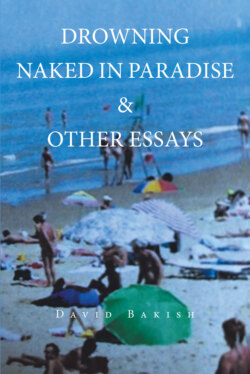Читать книгу Drowning Naked in Paradise & Other Essays - David Bakish - Страница 8
На сайте Литреса книга снята с продажи.
Оглавление2
Early Interest in Writing
When I was in high school, the local chapter of Hadassah, the Jewish women’s group, ran a contest. The topic for a poem was to be any biblical story. I chose Moses. My brilliant friend, Hans, when told what first prize was, a big box of Barton’s chocolates, asked if he could cowrite the poem for half the chocolates if the poem won.
Rhyming was fun. “Moses” won first prize. We split the candy, my giving Hans his choice of which pieces he wanted from the box. I guess this was really cheating, the first and only time I took credit for work not entirely my own.
A year or two later, I wrote an essay on the topic, “I Speak for Democracy.” The American Legion awarded first, second, and third place prizes. First prize was a check. A girl won that. The second-place winner was given the choice of two ten-inch LPs, a recording of Ray Anthony’s big band or vocals by Nat King Cole. He chose Ray Anthony. The principal then called me to the stage and joked that I had no choice but to accept the Nat King Cole LP. That’s what I would have chosen anyway. The students in the auditorium laughed. That was okay with me; I loved making people laugh.
My twelfth-grade teacher was in her last year before retiring. Harriet Kline was the most inspiring of teachers. She taught an awareness of the multiple styles of excellent writers through the centuries of British and American literature. What I remember most were the essays of Elizabethan author, Sir Francis Bacon, and the opening passage of Charles Dickens’ novel A Tale of Two Cities. Doing what Mrs. Kline called “aping,” another writer’s style, I wrote an essay, “On Scouting,” in Bacon’s style. I got an A-plus. What I most admired in Dickens’ style was his parallel structure:
It was the best of times, it was the worst of times, it was the age of wisdom, it was the age of foolishness, it was the epoch of belief, it was the epoch of incredulity, it was the season of Light, it was the season of Darkness, it was the spring of hope, it was the winter of despair, we had everything before us, we had nothing before us, we were all going to Heaven, we were all going direct the other way—in short, the period was so far like the present period, that some of its noisiest authorities insisted on its being received, for good or for evil, in the superlative degree of comparison only.
Strunk and White, in their influential small booklet, The Elements of Style, advocate short sentences. It’s impressive mastery of the English language to have one sentence comprised of a long series of complete thoughts without losing control or producing unintended fragments and comma splices.
Mrs. Kline thought I was the best writer in her 1954–’55 classes and wanted me to be given an award at graduation but was told by the administration that there was no such award. I settled for being inducted into the National Honor Society and the National Thespian Society, the latter despite my weak acting and directing skills.
One of the essays I wrote for Mrs. Kline was a first stab at an autobiography. It was largely about my parents’ hard struggle as immigrants to this country, land of opportunity. She gave the essay an A-plus.
The literary high point of that senior year was reciting and acting out the witches’ scene from Shakespeare’s Macbeth.
After that year, I never tried to copy any of the many great writers I would come to admire, but my appreciation grew for both luxurious, extensive, descriptive work and more concise, laconic, muscular work. In classical American literature, Hawthorne, Melville, Henry James, and Faulkner might be at one pole, F. Scott Fitzgerald, Hemingway, and J. D. Salinger at the other pole.
